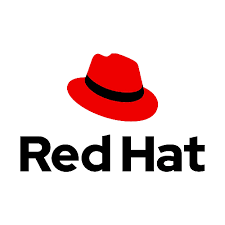EX200

| Formats: | Asynchronous |
| Blended | |
| Online | |
| Onsite | |
| Part-time | |
| Level: | Beginner |
| Prerequisites: | |
| Recommended Knowledge | |
| Basic familiarity with Linux or Unix systems | |
| Understanding of command-line operations | |
Formats: We offer our training content in a flexible format to suit your needs. Contact Us if you wish to know if we can accommodate your unique requirements.
Level: We are happy to customize course content to suit your skill level and learning goals. Contact us for a customized learning path.
Red Hat Certified System Administrator (RHCSA) (EX200)
The Red Hat Certified System Administrator (RHCSA) (EX200) training course is a comprehensive, hands-on program designed to equip IT professionals with the skills to administer Red Hat Enterprise Linux (RHEL) 9 systems. Offered in flexible formats including Instructor-Led Training (ILT), Virtual Instructor-Led Training (VILT), and in-house sessions, this course prepares participants for the RHCSA EX200 certification exam. Covering essential tools, system configuration, storage management, security, and container deployment, RHCSA training empowers you to manage enterprise-grade Linux environments. Ideal for system administrators and IT professionals, this course combines practical labs with real-world scenarios to ensure success in roles across industries like IT infrastructure, cloud computing, and DevOps.
Target Audience
This course is ideal for:
- System administrators managing RHEL-based environments.
- IT professionals transitioning to Linux administration.
- Aspiring candidates preparing for the RHCSA EX200 exam.
- DevOps engineers integrating Linux into workflows.
Prerequisites
To succeed in this course, participants should have:
- Basic familiarity with Linux or Unix systems (preferred).
- Understanding of command-line operations.
- No prior RHEL experience required, but networking basics are helpful.
What You Will Learn
In this course, you will gain expertise in:
- Managing RHEL systems with essential command-line tools.
- Configuring local storage and file systems.
- Securing systems and deploying containers.
- Automating tasks and maintaining system performance.
Benefits of the Course
By completing this course, you will:
- Master RHEL 9 administration skills for enterprise environments.
- Be fully prepared to pass the RHCSA EX200 certification exam.
- Enhance your career in high-demand Linux administration roles.
- Gain hands-on experience with real-world system management tasks.
Course Outline
- Understanding and Using Essential Tools
- Accessing the Command Line and Managing Files
- Using Text Editors (e.g., vim, nano)
- Managing Processes and Jobs
- Using Regular Expressions and Filters
- Operating Running Systems
- Boot, Reboot, and Shut Down Systems
- Managing System Services with systemd
- Monitoring System Resources and Logs
- Configuring Network Settings
- Configuring Local Storage
- Managing Partitions and Logical Volumes (LVM)
- Creating and Managing Filesystems
- Mounting and Unmounting File Systems
- Implementing Disk Quotas
- Creating and Configuring File Systems
- Configuring Automated Mounts with fstab
- Managing Access Control Lists (ACLs)
- Creating and Managing Swap Space
- Backing Up and Restoring File Systems
- Deploying, Configuring, and Maintaining Systems
- Installing RHEL Systems Using Kickstart
- Updating Software with Package Managers (e.g., yum, dnf)
- Managing Kernel Modules
- Configuring Software Repositories
- Managing Users and Groups
- Creating, Modifying, and Deleting User Accounts
- Managing Group Memberships
- Configuring User Authentication
- Managing Password Policies
- Managing Security
- Configuring Firewall Rules with firewalld
- Managing SELinux Contexts and Policies
- Setting Up SSH for Secure Access
- Implementing Basic Security Auditing
- Managing Containers
- Running Containers with Podman or Docker
- Managing Container Images
- Configuring Container Storage
- Troubleshooting Container Deployments
Please contact us for any queries via phone or our contact form. We will be happy to answer your questions.
Ferndale,
2194 South Africa
Tel: +2711-781 8014 (Johannesburg)
+2721-020-0111 (Cape Town)
ZA
Jumping Bean Contact Form!